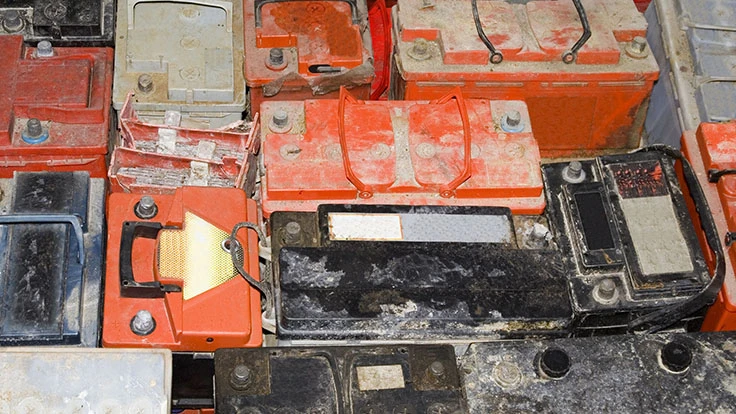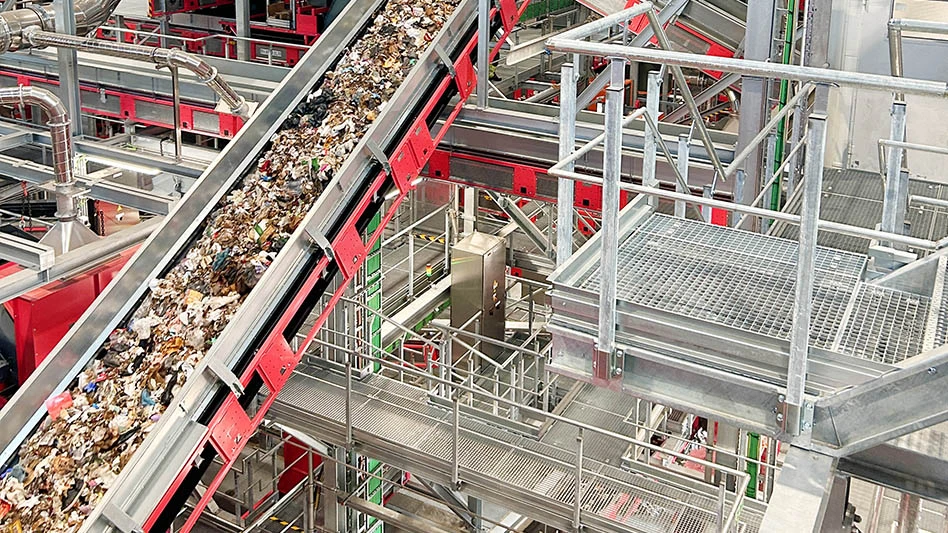
A new coalition was announced to develop best practices for managing vehicle, industrial and stationary batteries. The Responsible Battery Coalition, was launched at the Green California Summit, which took place April 26-27, 2017, in Sacramento, California, and is designed to bring together organizations committed to improving the life-cycle management of batteries.
The coalition is designed to advance the responsible production, transport, sale, use, reuse, recycling and recovery of transportation, stationary and industrial batteries and other energy storage devices, regardless of the technology used to make them.
"Every battery needs to be responsibly managed, and that's why we exist," says Executive Director Pat Hayes. "While current vehicle batteries have a 99 percent recycling rate, our goal is 100 percent. This also means preparing for the influx of advanced energy storage technologies hitting the market over the next five years. Our work is to accelerate solutions to ensure all batteries are responsibly managed."
The coalition believes batteries should be properly managed across their life cycle to not cause harm to people or the environment and be reused where possible and ultimately recycled.
The Responsible Battery Coalition is partnering with nongovernmental organizations to build on efforts already underway. It will focus on implementing sustainability metrics and tools established by the Sustainability Consortium (TSC) to raise the bar for battery life cycle management and will work with the Suppliers Partnership for the Environment to identify practices to apply to next generation batteries. The coalition also partnered with Living Lands & Waters, a group dedicated to the conservation and cleaning of our nation's waterways, including recycling recovered batteries.
"This is the only organization that brings together all players in a battery's life cycle, including manufacturers, sellers, users and recyclers," says Carole Mars, senior research lead at TSC. "Responsible battery management requires coordination across the entire life-cycle of the battery, not just at end-of-life recycling."
The coalition will collaborate with leading experts through its Science Advisory Board. This independent board will be led by Ramon Sanchez, director of sustainable technologies and health program at Harvard University's T.H. Chan School of Public Health.
"There is a public and environmental health benefit to ensure that all batteries are recycled today," says Sanchez. "Just as important is ensuring that what we use in the future begins as recyclable or reusable."
The coalition is designed to advance the responsible production, transport, sale, use, reuse, recycling and recovery of transportation, stationary and industrial batteries and other energy storage devices, regardless of the technology used to make them.
"Every battery needs to be responsibly managed, and that's why we exist," says Executive Director Pat Hayes. "While current vehicle batteries have a 99 percent recycling rate, our goal is 100 percent. This also means preparing for the influx of advanced energy storage technologies hitting the market over the next five years. Our work is to accelerate solutions to ensure all batteries are responsibly managed."
The coalition believes batteries should be properly managed across their life cycle to not cause harm to people or the environment and be reused where possible and ultimately recycled.
The Responsible Battery Coalition is partnering with nongovernmental organizations to build on efforts already underway. It will focus on implementing sustainability metrics and tools established by the Sustainability Consortium (TSC) to raise the bar for battery life cycle management and will work with the Suppliers Partnership for the Environment to identify practices to apply to next generation batteries. The coalition also partnered with Living Lands & Waters, a group dedicated to the conservation and cleaning of our nation's waterways, including recycling recovered batteries.
"This is the only organization that brings together all players in a battery's life cycle, including manufacturers, sellers, users and recyclers," says Carole Mars, senior research lead at TSC. "Responsible battery management requires coordination across the entire life-cycle of the battery, not just at end-of-life recycling."
The coalition will collaborate with leading experts through its Science Advisory Board. This independent board will be led by Ramon Sanchez, director of sustainable technologies and health program at Harvard University's T.H. Chan School of Public Health.
"There is a public and environmental health benefit to ensure that all batteries are recycled today," says Sanchez. "Just as important is ensuring that what we use in the future begins as recyclable or reusable."
Latest from Waste Today
- US Senate backs reduced cuts to EPA
- ELV Select Equipment, Reworld aid NYPD in secure firearm disposal
- Waste Connections announces Q2 results
- Returnity and Cosmoprof to address reusable bag waste
- SWANA releases report on aging WTE facilities
- New economic assessment reveals cost benefits of California’s SB 54
- Premier Truck Sales & Rental opens new facility
- TeknTrash Robotics, Sharp Group partner on humanoid robot pilot





